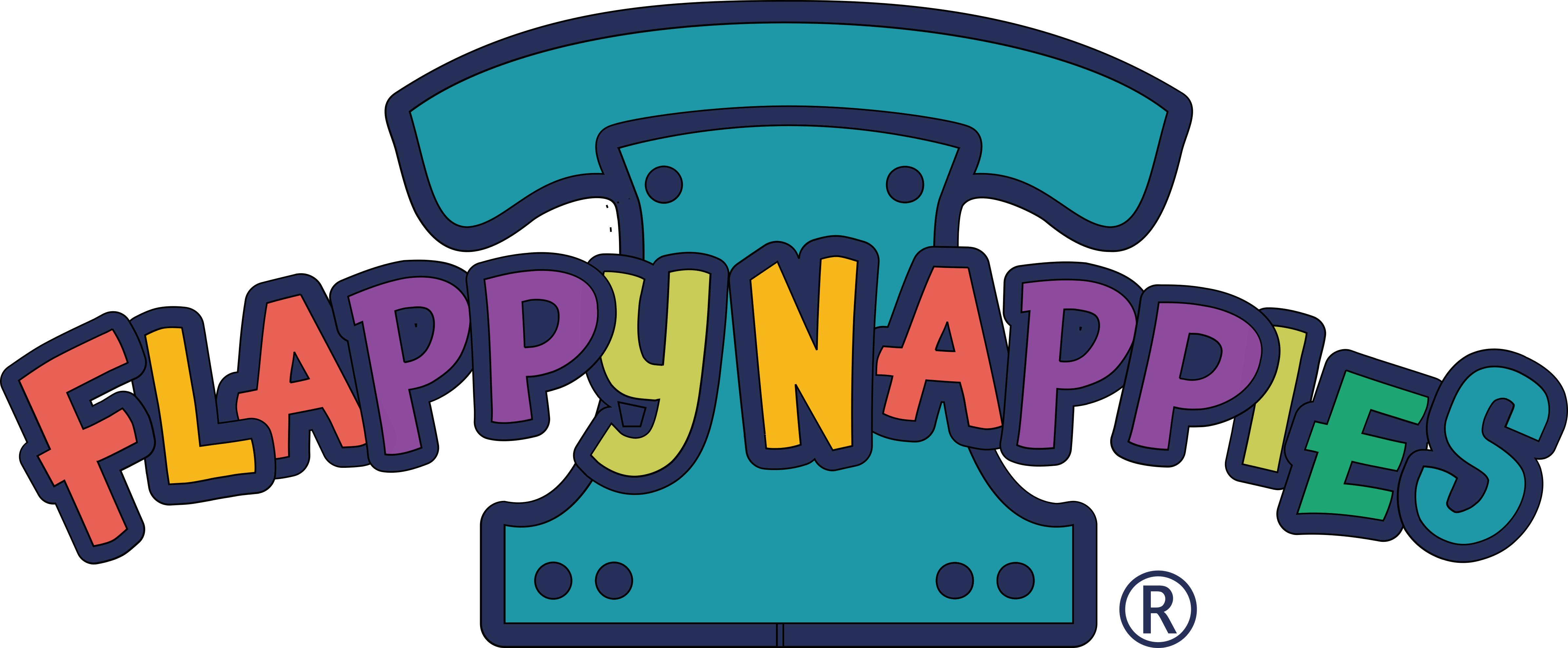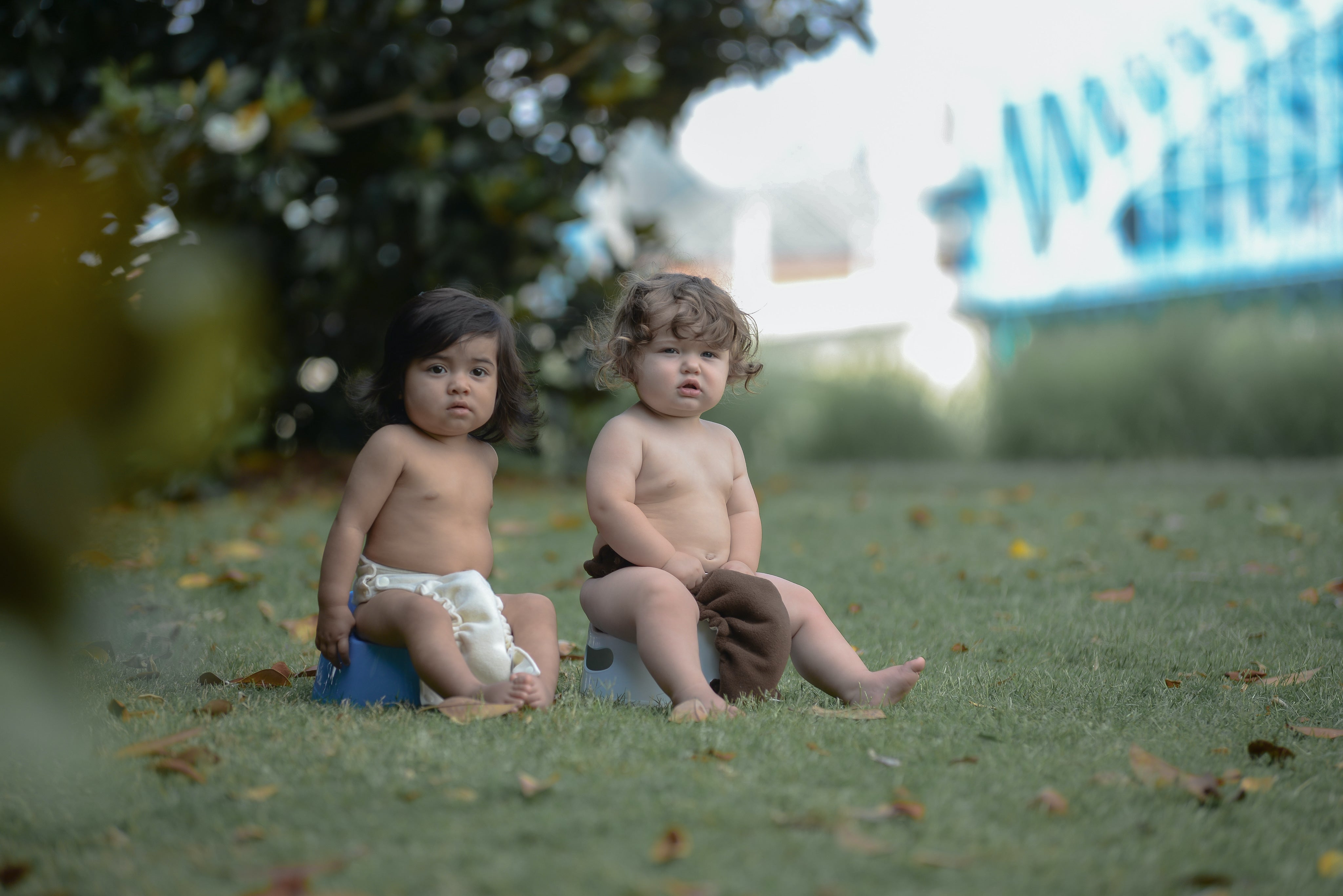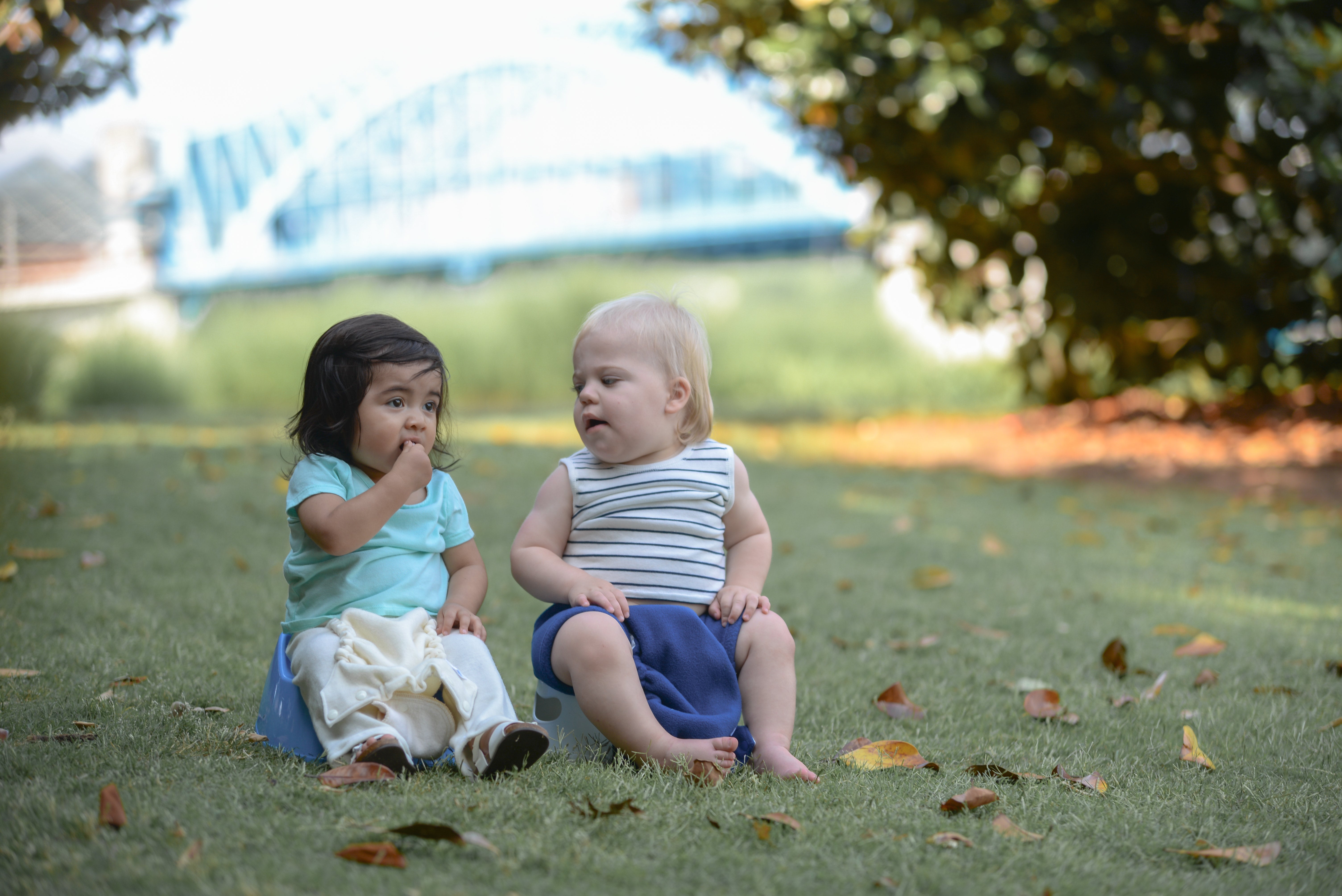The Ultimate Cloth Diapering Hack You Should Be Doing

Are you a cloth diaper user, but are struggling to thoroughly clean your diapers? Are you interested in cloth, but are intimidated by cleaning up poop? Or maybe cloth diapers were easy when your baby was exclusively breastfed, but now you’ve started solids and poops have become… interesting. In any case, read on for the best cloth hack you’ll ever learn!
“What do you do about poop in your cloth diapers?”
This is the most common question I get asked when people find out I use cloth diapers. I could respond about how exclusively breastfed poop is liquid and can go straight into the washing machine without fuss. I could also talk about how to deal with solid poops—dunk the solids into the toilet and give the diaper a spray with water before throwing it into the pail. But the truth is, I don’t respond with any of that, because—are you sitting down?
My baby almost NEVER poops in her diaper.
That’s right. The honest answer to “how do you deal with poop in your diapers” is simply, “I don’t.” How is that possible?
Elimination Communication
Before modern diapers and washing machines, keeping a baby in a diaper 24/7 for 3-4 years would not have been feasible. Washing was laborious; pee diapers were usually simply left out to dry. If a baby soiled his clothing, it needed to be boiled. So, what did parents used to do?
Newborn babies are born with instincts to not soil themselves. Have you ever noticed how a newborn baby tends to pee and/or poop as soon as the diaper is removed? Long ago, parents would “hold the baby out” and say “pss pss” to trigger a baby to instinctively pee or poop. Once baby learned to walk, he was directed to an appropriate place to eliminate. This kept diaper washing to a minimum, especially since most babies were completely toilet trained by about 18 months.

You can introduce the potty to your baby as young as birth. This baby is wearing a Flappy-Nappies® drop-flap diaper, which makes potty access easier.
The modern terminology for this timeless parenting technique is Elimination Communication (EC). Babies tend to pee and/or poop at predictable times, such as after meals, after sleep, or after being worn in a sling. They also often signal when they need to go by passing gas, making a “poop face”, getting still and quiet, or getting suddenly squirmy. If you start to pay attention, learning to read these cues is no harder than learning when your baby is hungry or sleepy.
Disposable diapers and the commercial incentive to delay potty training have all but eliminated EC from our society. It’s making a comeback, however, as cloth diaper users realize how much less messy diaper laundry becomes when most of baby’s poops go directly into the toilet. You also don’t need to wash diapers for as long if you do EC, since most EC kids are usually diaper-free by around 18 months.
What’s the point of EC?
Back in the day, EC was a necessity. But nowadays we have modern washing machines that clean and dry our diaper laundry for us, so you may be wondering what the point is.
Better for the environment
If you’re using cloth diapers, you’re already reducing your child’s environmental footprint by reducing landfill waste. When your baby also uses the potty, you further benefit the planet by reducing the amount of laundry you need to do every day.
The average potty-training age in the US is 3 years. If you half the amount of time your child spends in diapers, the lifespan of your cloth diapers increases. You also waste fewer resources, such as water and detergent, if you don’t need to do diaper laundry for 1-2 extra years.
Better for your child

Babies prefer to eliminate outside of a diaper!
EC babies tend to have less contact with pee and poop, which reduces diaper rash. Offering the potty can reduce fussiness and discomfort from needing to pee/poop or sitting in a wet/soiled diaper. Babies don’t want to poop their pants any more than you or I would!
There have also been studies that suggest early introduction of the potty aids in bladder development and the ability to empty it. Long-term disposable diaper use has also been linked to bedwetting past age five.
Better for YOU
Imagine if you could have a baby without having to change poopy diapers. Pure fantasy, right? Wrong!
Parents who start EC usually find that poops are the easiest to catch. They tend to be more obvious (even parents who don’t do EC usually know when their kid is pooping) and happen at predictable times. In fact, I started EC with all three of my newborns and found that we rarely had poopy diapers once they were about 2-3 months old. This is very common with EC!

My babies pooped almost exclusively in the toilet from 2-3 months onward.
On the other hand, parents who delay toilet training until age 2-4 often find that poops cause the most drama. Kids that have been conditioned for years to poop in a diaper have a hard time unlearning the habit, and some will beg for diapers to poop in during potty training. You can save yourself so much potty-training drama by investing in EC with your baby!
Is it too late to start EC?
EC is easiest to begin with a newborn because they have not yet been conditioned that the diaper is the toilet and they pee and poop very frequently, giving you lots of opportunities to practice. In general, the younger your child is when you introduce the potty, the easier time you’ll have.
You can start an older baby on the potty whenever you're ready!
However, EC can begin at any age! The only difference is how you approach it. No matter how old your baby is, we've got the resources you need to get started at Flappy-Nappies®. Check out our FREE guide to Elimination Communication, Diapers Stink! You can access the age-based guide, comprehensive troubleshooting FAQ, and digital workshops by clicking here. This guide is FREE to use instantly when you sign up for our mailing list.
I’m still not sold on EC.
There’s no law that says your baby must poop in a diaper. If you know he has to poop, why make him go all over himself? Why make yourself clean up after it? If you’re still not sold on the concept of EC, I recommend you read our debunking of 10 common EC myths.
It’s hard to wrap your head around EC when you live in an exclusively diapering society. It’s even harder when big disposable diaper companies have thoroughly hammered in their “wait ‘til they’re ready” philosophy. These companies want kids to wear diapers as long as possible because it’s profitable for them.
But you’ve already decided to do things differently by choosing cloth over disposables. Why not approach potty training differently, too?







Laissez un commentaire